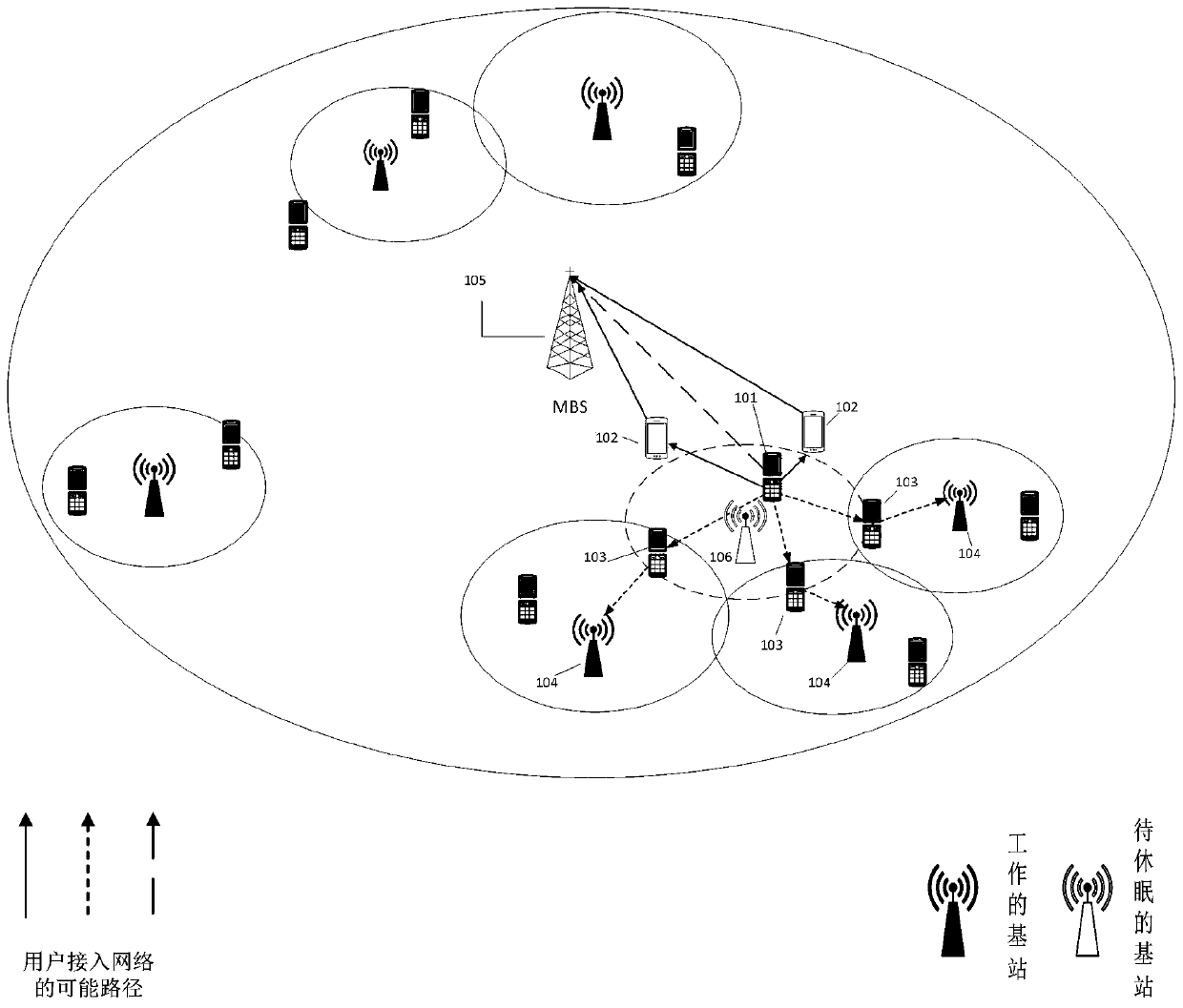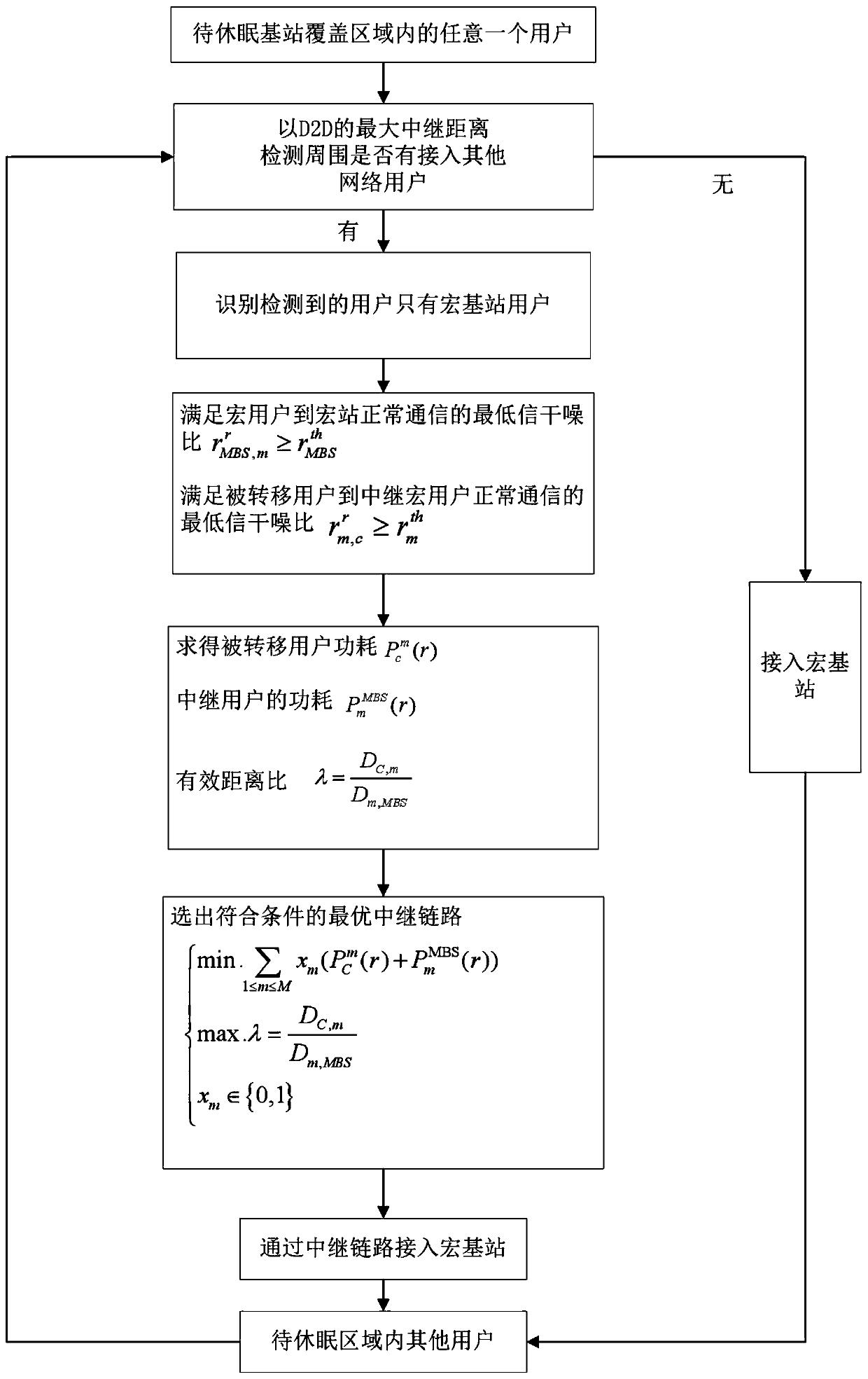Energy-saving transfer path selection method based on d2d relay for client in heterogeneous network
A heterogeneous network and transfer path technology, applied in the direction of reducing energy consumption, machine-to-machine/machine-type communication services, advanced technology, etc., can solve the problem of unfair relay users, unbalanced load of surrounding base stations, and no consideration of relay User power consumption ratio and other issues
- Summary
- Abstract
- Description
- Claims
- Application Information
AI Technical Summary
Problems solved by technology
Method used
Image
Examples
Embodiment Construction
[0085] The present invention will be further described below in conjunction with the accompanying drawings and specific embodiments.
[0086] Such as figure 1 As shown, it is a model of a possible transfer path of the UE during the dormancy process of the base station of the present invention.
[0087] The heterogeneous network includes a macro base station and n evenly distributed macro users, n≤200, and N small base stations are distributed in the coverage edge area of the macro base station, N≥5, randomly distributed within the coverage area of any small base station f l small base station users, where f=1,...,N, l≥5, macro base station has M available physical resource blocks (physical resource blocks, PRB), M≤200, where F f PRBs are allocated to N small base stations for multiplexing, F f =N, the number of small base station users using the same frequency band PRB(r) for communication at the same time is F r , where 1≤r≤M, F r ≥2.
[0088] The method for selectin...
PUM
 Login to View More
Login to View More Abstract
Description
Claims
Application Information
 Login to View More
Login to View More - R&D
- Intellectual Property
- Life Sciences
- Materials
- Tech Scout
- Unparalleled Data Quality
- Higher Quality Content
- 60% Fewer Hallucinations
Browse by: Latest US Patents, China's latest patents, Technical Efficacy Thesaurus, Application Domain, Technology Topic, Popular Technical Reports.
© 2025 PatSnap. All rights reserved.Legal|Privacy policy|Modern Slavery Act Transparency Statement|Sitemap|About US| Contact US: help@patsnap.com



